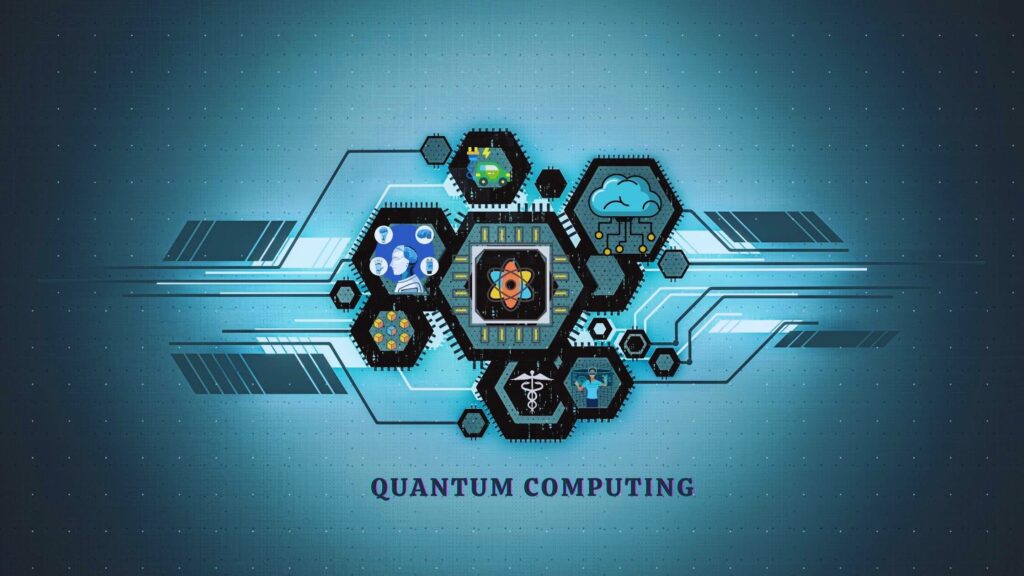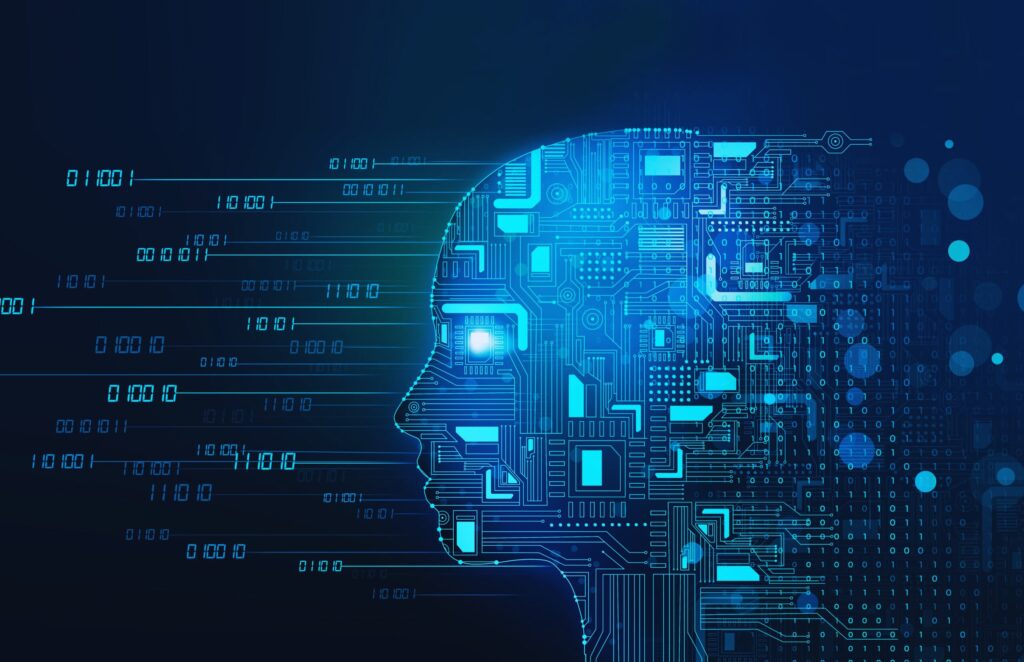Applied Quantum Computing refers to the practical application and implementation of quantum computing algorithms and principles to solve real-world problems and achieve tangible outcomes. It involves using the unique capabilities of quantum computing, such as superposition and entanglement, to perform calculations and process information in ways that traditional computers cannot. This includes a wide range of applications from cryptography and drug discovery to climate modeling and financial modeling, aiming to leverage quantum computing’s potential to tackle complex challenges more efficiently than classical computing methods.
Unpacking Quantum Computing

Quantum computing represents a groundbreaking shift from classical computing, harnessing quantum mechanics to process information in fundamentally different ways. At the heart of this technology are qubits, which, unlike classical bits that represent either 0 or 1, can exist in multiple states simultaneously due to superposition. This capability, along with entanglement—where qubits in a quantum state can influence one another instantaneously regardless of distance—provides quantum computers with their potential power. These principles enable quantum computers to solve certain complex problems much faster than classical computers, challenging conventional computational limits.
The Basics of Quantum Mechanics
Quantum mechanics is a fundamental theory in physics that explains the behavior of matter and energy at atomic and subatomic scales. It diverges from classical physics by describing phenomena that macroscopic laws cannot explain. Quantum mechanics introduces concepts such as wave-particle duality, where particles exhibit both wave-like and particle-like properties, and quantum superposition, allowing particles to exist simultaneously in multiple states. This theory is crucial for understanding the behavior of atoms, electrons, photons, and almost everything at the quantum level. It forms the foundation for various modern technologies, including semiconductors and quantum computing.
Quantum Computing vs. Classical Computing
Quantum computing differs from classical computing in its approach to processing information. Classical computers use transistors operating in a binary state, representing 0s and 1s. They excel at tasks such as email, spreadsheets, and desktop publishing. However, they have limitations in computing power and scalability compared to quantum computers. Quantum computers, on the other hand, use quantum bits or qubits, which can represent and process a vast amount of data simultaneously due to their ability to exist in multiple states (superposition). This makes quantum computing potentially more powerful for certain complex tasks, such as the simulation of quantum physical processes, cryptography, and optimization problems. However, quantum computing is still in its early stages, and for many everyday tasks, classical computing is currently more efficient and quicker. The complexity of quantum computing also introduces more layers to process information, which poses its own set of challenges.
The Real-World Applications of Quantum Computing

Now, let’s explore how this technology is set to change the world.
Cryptography
Quantum computing introduces revolutionary advancements in cryptography, offering enhanced security for various applications:
- Quantum Network Security: Quantum cryptography can significantly improve secure communication over long distances, safeguarding sensitive information against potential cyber threats.
- Credit Card Encryption: It has the potential to protect credit cards against fraud by encrypting information in a way that is nearly impossible to hack, ensuring safer transactions.
- Secure Communication Networks: Quantum cryptography enables the creation of highly secure communication networks, vital for government agencies, financial services, and other sectors dealing with confidential data.
- Enhanced Security for Digital Transactions and Communications: The technology can be applied to make transactions, video calls, and Point of Sale (PoS) systems more secure against hacking and eavesdropping.
These applications demonstrate the potential of quantum computing to transform the field of cryptography, providing unprecedented levels of data security.
Drug Discovery
Quantum computing holds transformative potential for drug discovery, addressing complex problems beyond the reach of classical computing:
- Solving Complex Drug Development Problems: Quantum computing can tackle drug development challenges considered too intricate for traditional computational methods, promising breakthroughs in creating new medications.
- Optimizing Chemical Libraries: It has demonstrated capability in optimizing chemical libraries for drug discovery, enabling researchers to efficiently identify promising compounds.
- Enhancing Machine Learning Protocols: Quantum computers may improve drug discovery by boosting machine-learning protocols for molecular dynamics simulations, speeding up the identification of viable drug candidates.
- Promoting Faster, More Efficient Research: The promise of quantum computing in reshaping drug discovery includes accelerating the research process, and making it quicker and more efficient.
As quantum computing technology matures, its impact on drug discovery and development is expected to grow, offering a game-changing approach to pharmaceutical research.
Climate Modeling
Quantum computing is set to revolutionize climate modeling and our understanding of environmental challenges through several key applications:
- Enhanced Pattern Recognition: It can significantly improve pattern recognition capabilities, crucial for climate prediction and machine learning application advancements.
- Fluid Dynamics-Based Problem Solving: Quantum computing shows promise in efficiently addressing fluid dynamics-based problems, essential for accurate climate modeling and energy applications.
- Revolutionizing Climate Understanding: The combination of climate modeling and quantum computing, like D-Wave’s technology, is changing our approach to environmental insights, offering new methods to predict and mitigate climate change effects.
- Mitigating Climate Change Effects: Quantum technologies in computing, sensing, and communication are pivotal in diagnosing and mitigating climate change impacts, providing crucial tools for environmental scientists.
- Major Breakthroughs in Global Warming Solutions: Quantum computing is on the path to driving significant breakthroughs necessary to tackle the climate crisis effectively, demonstrating its potential to transform our approach to global warming.
- Quantum Artificial Intelligence in Climate Science: It can be used to learn intelligent models of Earth system science, bringing novel insights into the science of climate change and enhancing our predictive capabilities.
Financial Modeling
Quantum computing is poised to transform financial modeling by enhancing its precision, speed, and complexity handling. Key applications include:
- Targeting and Prediction: Experimental quantum systems are already being leveraged for advanced targeting and prediction in financial services, offering new insights into customer behavior and market trends.
- Simulating Market Behaviors: It promises a robust framework for simulating market behaviors, which is crucial for risk management and investment strategy optimization.
- Optimizing Solutions for Financial Problems: Quantum computing facilitates optimized solutions to real-world financial problems using quantum machine learning algorithms, enhancing decision-making processes.
- Efficient Scenario Simulation and Portfolio Management: It significantly improves the efficiency of simulating complex financial scenarios and optimizing portfolio management, offering a competitive edge to financial institutions.
- Practical Guidance for Financial Modeling: Step-by-step guidance using quantum algorithm frameworks in a Python environment enables tackling complex financial modeling challenges.
- Exploring Quantum Frameworks, Models, and Techniques: It examines the impact of quantum computing on financial modeling and simulations, utilizing tools like Qiskit and Pennylane for practical applications.
The Current State of Quantum Computing

As of early 2024, quantum computing continues to evolve, leveraging the principles of quantum mechanics to process, store, and manipulate large data sets more efficiently than traditional computing. The field is moving beyond big hardware announcements, focusing instead on consolidating years of research to make quantum computers more practical and accessible. IBM’s Osprey, with 433 qubits, represents the current peak in quantum computing capability, highlighting the ongoing challenge of scaling qubit numbers to enhance computational power. The ability of quantum computers to simulate the quantum world promises revolutionary applications, from drug discovery to material science. However, the technology is still in a developmental stage, with its enormous potential yet to be fully realized. Current research efforts focus on creating and manipulating quantum states to solve complex problems more efficiently than classical computers.
Advancements in Quantum Technology
Quantum computing is currently in an exciting phase of development. The field has seen significant advancements, including achieving quantum supremacy, the development of industrial quantum computers, and the establishment of cloud-based quantum computing services. These developments are underpinned by continuous improvements in quantum chips, control logic, systems, and architectures. Furthermore, the progress in quantum computing is increasingly characterized by the consolidation of years of research rather than merely focusing on hardware announcements. Researchers are exploring various techniques for creating qubits, the fundamental building blocks of quantum computers, leading to almost daily developments in the field. Despite being in its nascent stages, quantum computing technology has already demonstrated its potential to perform calculations beyond the reach of classical computers.
Challenges in Quantum Computing
Quantum computing, despite its potential, faces several significant challenges:
- Error Correction: Managing errors in quantum computations is critical and complex due to the fragile nature of qubits.
- Scalability: Scaling quantum systems to manage thousands or millions of qubits, which is necessary for practical applications, remains a significant hurdle.
- Hardware Development: Creating stable, reliable quantum hardware that can operate under normal conditions is still in the experimental stage.
- Software Development: The development of quantum software is in its infancy, with tools and languages still being defined and optimized.
- Quantum Decoherence: Preserving the quantum state of qubits over time is a challenge due to decoherence, which can quickly degrade their state.
- Qubit Quality and Connectivity: Not only the quantity but the quality of qubits matters, along with their ability to maintain long-range entanglement.
These challenges highlight the gap between the theoretical promise of quantum computing and its practical implementation. Overcoming them requires concerted efforts in research and development across the quantum computing ecosystem.
Error Rates and Qubit Stability
Error rates and qubit stability are critical challenges in quantum computing. Qubits, the fundamental units of quantum information, are highly susceptible to errors due to their fragile nature, which can disrupt the computation process. These errors are primarily due to environmental noise, making quantum bits extremely sensitive and introducing high error rates in quantum computing operations. Practical quantum computing necessitates error rates significantly below those achievable with current physical qubits, highlighting the need for advanced error suppression strategies.
Moreover, the stability of qubits is a concern, as they are prone to decoherence, potentially leading to the loss of quantum information. Noise and high error rates necessitate the development and application of error mitigation techniques to maintain stable qubits for effective quantum computing.
scalability and Commercial Viability
Scalability in quantum computing is a significant challenge, necessitating the increase in both the number and quality of qubits to enhance performance. However, recent advancements suggest that quantum computing is on the brink of achieving commercial viability, driven by investments, talent, and growing interest from various sectors. Despite these advances, quantum computing faces several hurdles including error correction, hardware and software development, alongside the complexity of integrating with classical computing systems. The semiconductor qubit modality presents a scalable option, yet the field is in a nascent stage, akin to the early days of vacuum tube technology, indicating potential unknowns in scalability. Various qubit technologies could shape the future, highlighting the importance of ongoing research and development to overcome these challenges.
The Future of Applied Quantum Computing

The future of applied quantum computing is poised to revolutionize various fields by offering unprecedented computational power. Key predictions and trends for 2024 and beyond highlight the following areas of impact:
- Big Data and AI: Quantum computing will significantly enhance big data search processes and accelerate the development and sophistication of AI and machine learning algorithms, leading to more efficient data analysis and insights.
- Optimization: Quantum computers will solve complex optimization problems more efficiently than classical computers, benefiting logistics, manufacturing, and energy management.
- Material Science and Chemistry: The ability to simulate molecules and chemical reactions with high accuracy will accelerate drug discovery, material science, and environmental sustainability efforts.
- Cryptography and Security: Quantum computing poses challenges to current encryption methods but also offers new quantum-resistant algorithms, ensuring future digital security.
- Scientific Research: Quantum computing will unlock new possibilities in physics, climate modeling, and beyond by enabling the simulation of complex systems that are infeasible for classical computers.
Predictions and Potentials
The future of applied quantum computing holds significant promise, marked by groundbreaking advancements and transformative potentials across various industries:
- Transition to Logical Qubits: By 2024, the field is expected to evolve from physical qubits to error-corrected logical qubits, enhancing quantum computing’s reliability and scalability.
- Economic Impact: Quantum technology is forecasted to reach a $6 billion market and create over 19,000 jobs in Australia alone, indicating its substantial economic influence worldwide.
- Diverse Applications: From biotech to electric vehicle manufacturing, quantum computing will significantly impact various sectors by offering solutions to complex problems that are currently intractable.
- Financial Instruments: Firms like Goldman Sachs anticipate employing quantum algorithms to price financial instruments within five years, suggesting a near-term practical application in finance.
- Workforce Transformation: Quantum computing will not only influence technological capabilities but also how work is performed, necessitating new skills and roles.
- Focus on Bit Quality and Error Correction: As the next significant global shift after AI, the emphasis will be on improving quantum bit quality and error correction mechanisms.
Ethical Considerations and Quantum Computing
The ethical considerations surrounding quantum computing encompass several critical areas:
- Potential for Misuse: There’s concern over quantum computing being used for malicious purposes, such as breaking encryption and cybersecurity measures.
- Resource Allocation and Inequality: Quantum computing’s significant resource requirements could exacerbate inequality, as only a few nations and organizations might afford these technologies, leading to a concentration of power and access.
- Ethical Unknowns: The “known unknowns” of quantum technology include ethical considerations arising from its abuse, misuse, or unintended consequences, necessitating safeguards.
- Threats to Existing Protections: Quantum computing could potentially threaten current cybersecurity measures, data privacy, and encryption, posing significant ethical risks.
- Emerging Ethical Literature: The field is beginning to explore these ethical problems in depth, contributing to an emerging literature on quantum ethics.
Conclusion
Applied quantum computing represents a frontier of technology that’s set to revolutionize our world. From changing the way we protect our data to discovering new drugs and tackling climate change, its potential applications are vast and varied. While challenges remain, the progress in this field is a testament to human ingenuity and the endless quest for knowledge. The quantum future is bright, and it’s one we should all look forward to with anticipation and preparedness.
Read also: Who is Radhika Merchant?
FAQs
Q. What is a qubit?
A qubit, or quantum bit, is the basic unit of quantum information. It represents a state that can be both 0 and 1 simultaneously, thanks to the principle of superposition.
Q. How does quantum computing differ from classical computing?
Quantum computing differs from classical computing in its use of qubits for processing information, allowing it to perform complex calculations more efficiently by exploiting quantum mechanics principles like superposition and entanglement.
Q. What are some potential benefits of quantum computing?
Potential benefits include breaking new ground in drug discovery, improving climate modeling accuracy, optimizing financial models, and enhancing cybersecurity through quantum encryption.
Q. What are the main challenges facing quantum computing?
The main challenges include high error rates, maintaining qubit stability, and scalability, and ensuring commercial viability.
Q. Is quantum computing a threat to current encryption methods?
Yes, quantum computing could potentially break many current encryption methods. However, it also offers the prospect of much more secure quantum encryption techniques.





Very nice. Very. Greate. Amazing🎉🎉🎉🎉👍👍👍👍👍👍✨✨✨✨✨✨✨✨✨✨✨✨✨✨✨✨✨✨✨✨✨✨✨💫💫💫💫💫💫💫💫💫💫🌟🌟🌟🌟🌟🌟🌟🌟🕉️🕉️⭐⭐⭐ very usefull. Topics
otOGMKrJRs